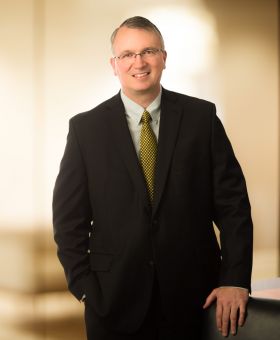Claiming an Economic Practice or a Mathematical Technique after SAP America, Inc., v. Investpic, LLC.
 Carl Reed
Carl Reed See Bio
Alice rejections (rejections under 35 U.S.C. § 101) often relate to claims that are rejected as being directed to abstract ideas, without substantially more. Many decisions issued by the Federal Circuit give insight with regards to whether a claim is directed to patent-eligible subject matter or to an abstract idea. The Federal Circuit, in SAP America, Inc. v. InvestPIC, LLC, No. 2017-2081 (Fed. Cir. May 15, 2018) added to this growing body of case law. Whether or not SAP America is helpful is another question.
SAP America dealt with claims that related to performing certain statistical analyses of investment information. Even without reading the opinion, a practitioner is likely to conclude that the claims will be held invalid because fundamental economic practices are the main category of claims that have been deemed invalid under § 101. When identifying an abstract idea, the MPEP specifically mentions economic practices. See MPEP 2106.04(a)(2) Part (I).
SAP America affirmed the decision that the following claim was directed to an abstract idea and therefore not patent eligible. A method for calculating, analyzing and displaying investment data comprising the steps of:
(a) selecting a sample space, wherein the sample space includes at least one investment data sample;
(b) generating a distribution function using a re-sampled statistical method and a bias parameter, wherein the bias parameter determines a degree of randomness in a resampling process; and,
(c) generating a plot of the distribution function.
In the Court’s analysis, this claim is directed to “selecting certain information, analyzing it using mathematical techniques, and reporting or displaying the results of the analysis”. See Op. at 8.
Assume, for a moment, that the claim was a groundbreaking innovation in the world of finance. Further, assume that the invention was not anticipated or obvious over any prior art. The Federal Circuit suggests that this hardly matters. According to SAP America, even if the claimed techniques are “groundbreaking, innovative, or even brilliant”, that is “not enough for eligibility”. See Op. at 2. SAP America further states that novel techniques and non-obvious techniques are not enough in the context of patent eligibility. See Id. The Court concludes that a “claim for a new abstract idea is still an abstract idea”.
The analysis set forth by the Federal Circuit may give an inventor in the financial arts pause when considering whether to seek patent protection. It is important to remember, however, that the court is evaluating an existing claim that is not currently under prosecution. Even if there is some prejudice against claims directed to economic practices, there is at least some support for the contention that patents can be obtained as long as the claims contain substantially more than the abstract idea. Unfortunately, the court in SAP America did not provide adequate guidance with regard to this issue of what may constitute substantially more in this realm.
The court did, however, address mathematical ideas in other subject matter areas. The Court noted that, in McRO Inc. v. Bandai Namco Games America Inc., 837 F.3d 1299 (Fed. Cir. 2016), the improvement “was to how the physical display operated (to produce better quality images), unlike (what is present here) a claimed improvement in a mathematical technique with no improved display mechanism”. See Op. at 9. The distinction between SAP America and McRo appears to be that the claims in McRo were directed to the creation of “something physical”. See Op. at 9. The claims in McRo also “had the specificity required to transform a claim from one claiming only a result to one claiming a way of achieving it”. See Id.
The Court also distinguished Thales Visionix Inc. v. United States, 850 F.3d 1343 (Fed. Cir. 2017). Thales related to a physical tracking system. Here, the “use of mathematics to achieve an improvement no more changed the conclusion that improved physical things and actions where the subject of the claimed advanced that it did in Diamond v. Diehr, 450 U.S. 175 (1981). See Op. at 10.
In distinguishing McRo and Thales, the Court noted that in the present case the “focus of the claims is not a physical-realm improvement but an improvement in wholly abstract ideas – the selection and mathematical analysis of information, followed by reporting or display of results”. This simply reiterates the Court’s fundamental contention that a new abstract idea is still an abstract idea.
While the Court provides hints with regard to other subject matter areas, SAP America does not fully address the “substantially more” aspect of claims directed to economic or financial practices. The decision does not fully explain how the claims that relate to statistical analysis can be eligible. When seeking patent protection, make sure that the claims are not directed to the mathematical technique or economic practice in and of itself. In light of SAP America, success is more likely when the claims are directed to a practical application or a physical improvement. After all, a new application or a new thing is substantially more than a new idea.